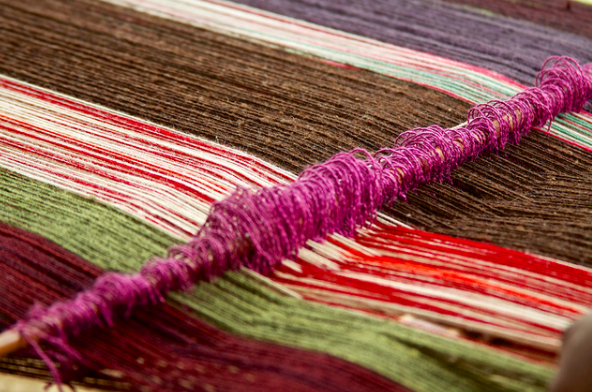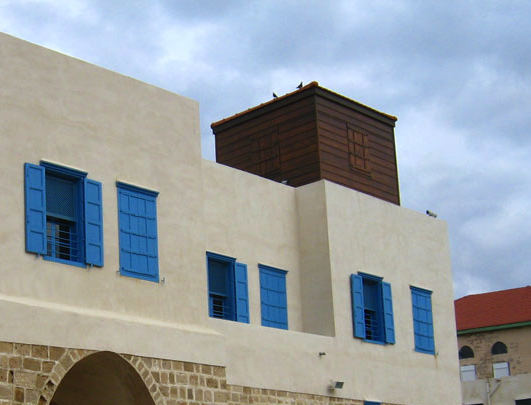
Weaving the Future from the Threads of the Past

Across the world, the 19th century was a time of dramatic change. From our 21st century vantage point we may perceive it as “old fashioned” but in truth it was a time of change such as the world has rarely seen. In some places the world experienced revolutions, in others wide ranging reforms arose in almost every aspect of society. This was the time when the modern world was born. Bahá’u’lláh lived at this time and his writings are often directed to the reform of society. How Bahá’u’lláh goes about weaving the future from the threads of the past provides insights to Bahá’u’lláh’s work that offer food for reflection.
Often the past is not simply “thrown out” and replaced with the “new”. This contrasts sharply with the changes overtaking society in his own time – which often severely rejected the past – sometimes with accompanying violence and revolution.
In Bahá’u’lláh’s teachings the past is gently woven into new forms in the body of Bahá’u’lláh’s teachings. We have seen for example, how a past focus on what people wear was transmuted in Bahá’u’lláh’s thought into adornment with human virtue. Another example was provided in the way medieval notions of “celestial spheres” is transitioned to a focus on reason and observation and the essential unity of all reality – through a discussion of extrasolar planets. In both these examples, something of the past is carried forward, but its hue, shape and colour are now entirely different.
We may consider religion itself from this viewpoint. Many reform movements of the 19th century were concerned to end religious orthodoxies that had ossified societies for centuries (we may think of France, or Turkey). Both swung violently to secularism. There have been other examples and in some cases the result has only been to lay the seeds for a violent swing back to previous practice.
Bahá’u’lláh is of course a prophet — and therefore religion is inherent in his mission. Unlike some thinkers of his time, or ours, religion is not rejected as something from the past to be thrown away. Indeed it is essential to our future.
Religion is verily the chief instrument for the establishment of order in the world and of tranquility amongst its peoples. The weakening of the pillars of religion hath strengthened the foolish and emboldened them and made them more arrogant. Verily I say: The greater the decline of religion, the more grievous the waywardness of the ungodly. This cannot but lead in the end to chaos and confusion. Hear Me, O men of insight, and be warned, ye who are endued with discernment![1]
Yet the future of religion Bahá’u’lláh weaves is profoundly different from the past as in the examples we have seen above. So different that in many senses to use the label “religion” raises connotations that simply have no application in the case of Bahá’u’lláh’s teachings – among them, the complete absence of any form of clergy.
Another example in which the past is carried forward in new and transumuted forms, is Bahá’u’lláh’s own religious laws found in the Kitab-i-Aqdas. These do not ignore past religious practice. Rather threads are taken and rewoven anew.
For example, it is not sufficient simply to ignore the past practice of labelling certain human beings as unclean. It is necessary to address the concept. Even following its abolition by Bahá’u’lláh, something remains that informs the present.
Verily, all created things were immersed in the sea of purification when, on that first day of Riḍván, We shed upon the whole of creation the splendors of Our most excellent Names and Our most exalted Attributes.[2]
The abolition symbolises the dawning of a new day. Further connotations of religious prejudice associated with the ancient notion are transitioned to an attention to human hygiene which immediately follows the abolition of “uncleanness”.
God hath enjoined upon you to observe the utmost cleanliness …[3]
Another example is the law of inheritance, again a thread taken from the past, which is continued in the Kitab-i-Aqdas, but then fundamentally reshaped. The testator has both the duty and the freedom to leave their property as they wish. The inheritance law becomes an intestacy law – a law not intended in general to be used – as everyone is called on to make a will. In this context, Nader Saeedi offers an understanding of the law as primarily symbolic of Bahá’u’lláh’s own fulfilment of previous religious prophecy. (See Nader Saeedi, Logos and Civilization, pp 271-274) Again we see the past rewoven in new forms.
Another example is the exemption of women from the requirement of prayer and fasting during menstruation. Again this draws on threads from the past. In many old religious practices women were regarded as “unclean” during menstruation. Again it is not enough simply to ignore this context. We have already seen that Bahá’u’lláh has explicitly abolished the concept of uncleanness (of things and people). The past burden imposed on women in rendering a bodily function “unclean” is rewoven by Bahá’u’lláh as a privilege.
God hath exempted women who are in their courses from obligatory prayer and fasting. Let them, instead, after performance of their ablutions, give praise unto God, repeating ninety-five times between the noon of one day and the next “Glorified be God, the Lord of Splendor and Beauty.”[4]
The provision of a special verse that only women say, implicitly rejects any suggestion that menstruation is in some way a barrier to connection with the divine. Indeed it seems reasonable to conclude that there is recognition of a special sacredness here. Perhaps Bahá’u’lláh here picks up an ancient thread of a more matriarchal pre-history that has been largely forgotten in recent history and modern culture.
Yet another example is in the institution of monarchy – that Baha’u’llah wishes to see transumuted in the context of constitutional monarchy – yet without wishing an entire disappearance of the ancient institution.
The Kitab-i-Aqdas offers us another sense in which the past is continued into the future. Its provisions are not meant to be sharply introduced and implemented. They are unfolded gradually over time – accommodating to an unfolding development of civilization – the past flowing without sharp interruption into the future.
the laws of God are like unto the ocean and the children of men as fish, did they but know it. However, in observing them one must exercise tact and wisdom … One must guide mankind to the ocean of true understanding in a spirit of love and tolerance. The Kitáb-i-Aqdas itself beareth eloquent testimony to the loving providence of God.[5]
The weaving of the past into the future is in a sense an expression of the oneness of reality. We are not radically different to our forebears and indeed our lives only make sense as a continuation of innumerable stories and lives that have gone before us. Bahá’u’lláh’s teachings are not disconnected with those of the messengers before him – they fulfil the promises they made. The past is not something to be condemned and forgotten, any more than we would condemn or forget our own childhood or adolescence. Having reached the stage of adulthood, the requirements of adulthood make their own undeniable demands for change that cannot be ignored. Nonetheless the past has its place and deserves its due respect as the pathway that leads us to the present and the future.
Image Credits: Creative Commons https://www.flickr.com/photos/mckaysavage/11265191803
(This article is the 49th in a series of what I hope will be 200 articles in 200 days for the 200th anniversary of the birth of Bahá’u’lláh. The anniversary is being celebrated around the world on 21 and 22 October 2017, The articles are simply my personal reflections on Bahá’u’lláh’s life and work. Any errors or inadequacies in these articles are solely my responsibility.)






